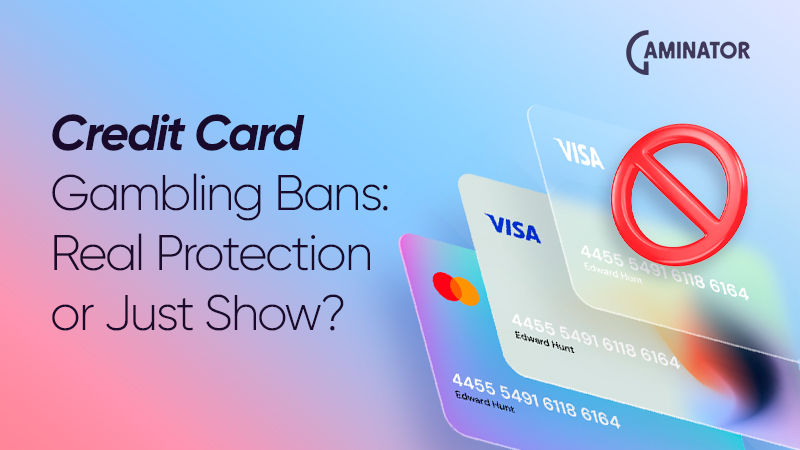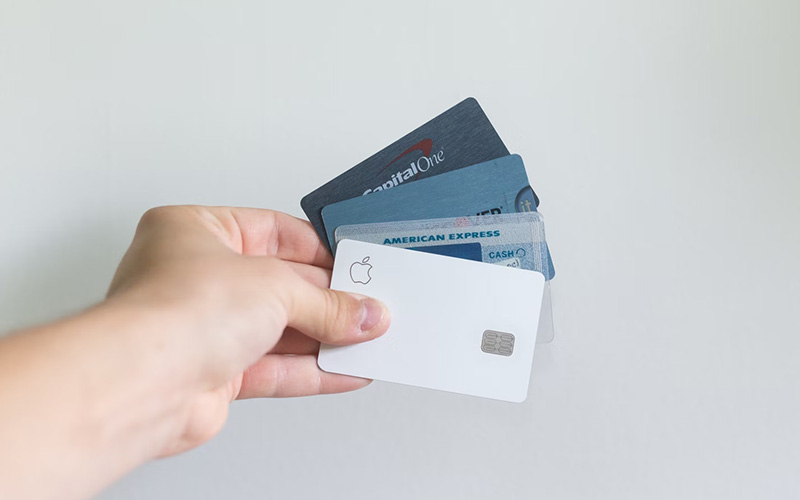Credit Card Gambling Bans: Real Protection or Just Show?

A Disconnect Between Policy and Reality
The credit card ban feels like a fix from people far removed from the realities of financial stress. In the UK, where the restriction started in 2020, the goal was to stop punters from gambling with borrowed funds.
However, a recent study by NatCen, commissioned by Greo Evidence Insights, found the ban was only a partial success. It added some friction but did not change much for those who already struggle with gambling issues. These users still found other ways to borrow money and continue playing.
The ban may have been more effective for casual players who simply stopped using credit cards and switched to an alternative payment method. For at-risk individuals, though, it just pushed them towards more hidden and less secure borrowing options.
Other Ways of Lending
The elimination of the credit card method does not stop borrowing.
Punters often turn to other options:
- payday loans;
- soft credit platforms;
- informal lending.
These means are harder to track and rarely come with the protections that regulated credit cards offer.
Experts point out that providers and banks are more involved in consumer protection than ever before. For example, Santander now sends alerts and offers support to customers who show signs of gambling-related harm. This kind of monitoring is not possible with unregulated lenders.
Data about Credit in Use
A report from UK Finance in early 2025 showed 53 million credit card accounts in the country. Out of these, 17 million had no negative balance over each month. That means many people use them responsibly and pay them off in full.
Still, convenience keeps credit cards as a popular means for gambling deposits. At the same time, they are not ideal for this purpose. Their structure makes refunds and withdrawals more difficult compared to debit cards. Credit transactions also come with additional fees, such as cash advance charges. These drawbacks already limit their appeal, and in many regions, acceptance rates for credit card payments in gambling are much lower than debit.
The Industry and the Quiet Win
Operators rarely complain about such bans. One reason is chargebacks. When players dispute transactions, the managers must spend time and resources to respond. Around 75% of chargebacks in the wagering industry come from verified users who regret their spending and try to reverse it. The elimination of credit cards removes this issue, making life easier for operators.
Chargebacks are not a major financial hit, but they are a constant headache. The elimination of one of their main sources is a quiet win for the industry.
Ubiquitous Credit
A review of over 74,000 gambling deposits across UK-licensed sites shows that more than 96% came from credit accounts. The remaining deposits were mostly overdrawn with small amounts.
Interestingly, people with less money in their accounts tend to make smaller deposits. This suggests that even without cards, punters still use other forms of credit like overdrafts. The elimination of one source does not mean that gambling with borrowed funds stops. It just moves elsewhere.
Full Picture and Utility
Credit card transactions provide useful insights for affordability checks and help operators identify risky patterns. Without them, player behaviour tracking becomes harder. Managers now need to find other ways to understand how money enters punters’ accounts.
Experts argue that real protection comes from well-designed checks, not blanket bans. The identification of financially vulnerable players requires visibility into their payment habits. As a monitored and regulated method is removed, it weakens that visibility.
New Problems from a Fix

Credit card bans may appear beneficial on paper, but they merely shift the issue rather than solving it. High-risk punters are still gambling with borrowed money, only now they do it through channels that are harder to monitor.
The average deposit from overdrawn accounts is lower than that from in-credit accounts, which suggests that these users are already cautious. At the same time, newer services like buy-now-pay-later options continue to grow and present new challenges. They often fall outside traditional financial regulation and can be used for gambling.
Real Solutions
The data shows that the credit card ban does not stop the use of borrowed money for gambling. It removes a visible channel but leaves other options open. The ban may reduce some operator costs, especially around chargebacks, but it does not offer real protection to those who need it most.
Credit cards are only one piece of the puzzle. For true harm reduction, the industry and regulators need a wider view.
Other benefits can be achieved from the following solutions:
- more advanced real-behaviour focus;
- better data use;
- stronger affordability checks;
- smarter policies.
Check the information used to contact us carefully. It is necessary for your safety.
Fraudsters can use contacts that look like ours to scam customers. Therefore, we ask you to enter only the addresses that are indicated on our official website.
Be careful! Our team is not responsible for the activities of persons using similar contact details.



